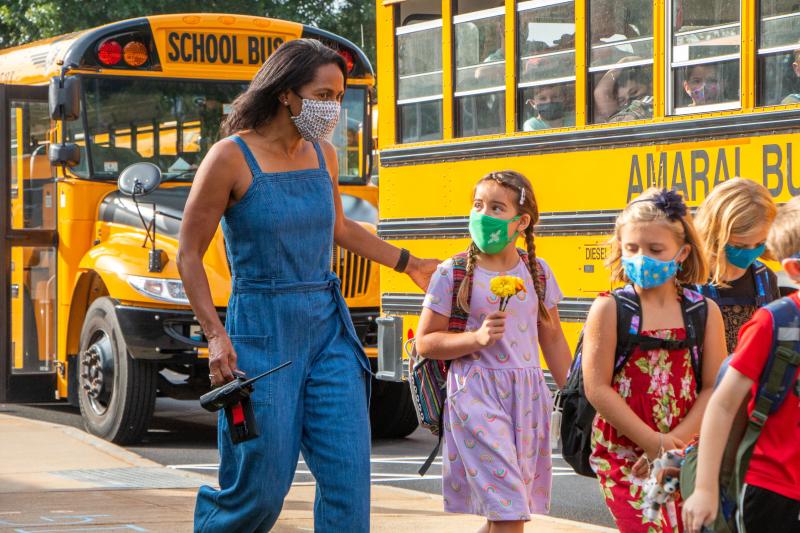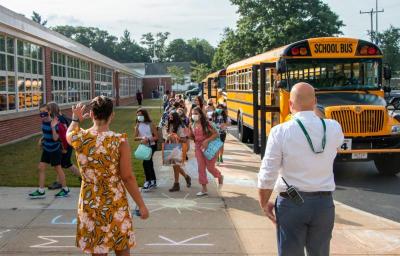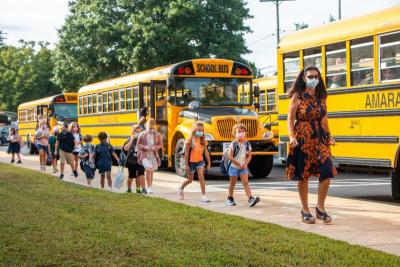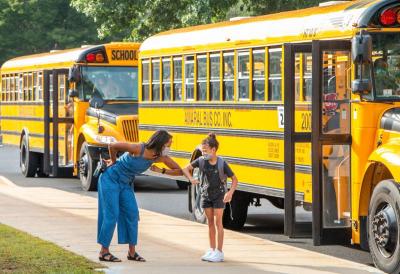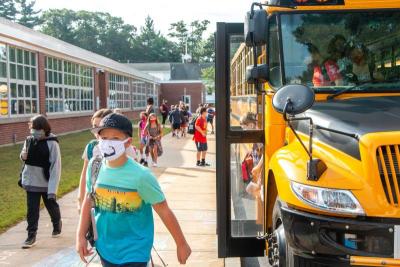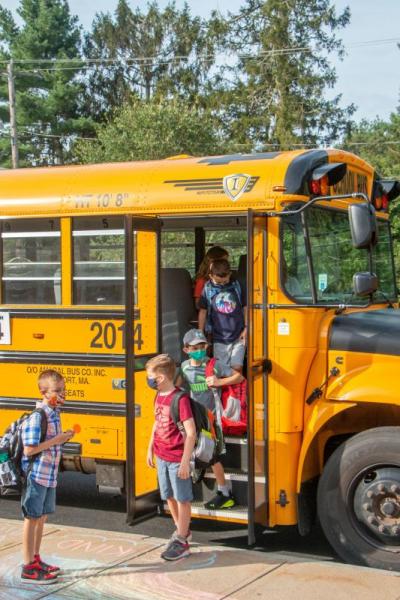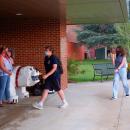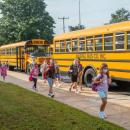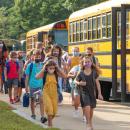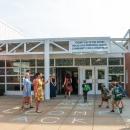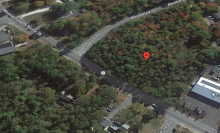School starts: ORR has ‘tools in our toolbox’ for tackling covid
The start of the school year looked a bit more normal in the Old Rochester Regional School District, as students poured into their classrooms on the first day of school Aug. 31.
“The first day of school is always the best day,” said Rochester Memorial Principal Derek Medeiros. “It’s so nice to welcome everyone back — the building becomes alive again.”
But some caveats still linger as covid cases remain the highest they’ve been in months.
The most notable may be that students, faculty and staff were all wearing masks on the first day back, and will continue to do so until at least October — regardless of vaccination status.
“I know many of us were hoping for this school year to begin with a greater sense of normalcy for all,” Superintendent Mike Nelson said at an Aug. 26 joint School Committee meeting. “I was hoping for the same — and although we may not all agree on the best way to reopen schools, I’m hoping that we can all agree to support the greater good in the school community as a whole.”
Medeiros said last year’s experience with teaching during the pandemic will flatten the learning curve this year. The schools are implementing renewed quarantine protocols, and tackling learning loss resulting from remote school last year.
“We have tools in our toolbox this year,” he said.
The Department of Elementary and Secondary Education implemented a mandate just before the start of school that will keep students masked through at least Oct. 1. Come that date — if a school reaches an 80% vaccination threshold for students and staff — masks will be allowed to be removed.
But, with no covid vaccine approved for children under 12, it’s unclear if, or when, some students will be able to remove their masks this year.
In a Mattapoisett School Committee Meeting on Aug. 30, Nelson said he hopes that the covid regulations written into student handbooks will be able to provide flexibility, should a vaccine be approved for children, or covid guidance change.
“I believe the way we’ve positioned ourselves allows us to be flexible,” he said.
As it stands, covid guidelines in the schools are more forgiving than last year, when contact tracing regularly placed dozens of students and staff in quarantine.
Asymptomatic students who are vaccinated, for example, will be exempt from quarantine and testing protocols for close contacts. The same will be true for students who have been in close contact with a covid positive person while wearing a mask on the school bus or in a classroom setting, provided that students are sitting at least three feet apart.
In addition, students will be able to opt in to covid testing to take rapid antigen tests on-site in order to avoid or reduce quarantine times.
Symptomatic students with isolated or mild symptoms who receive a negative test result will be allowed to stay in school, and students who have had and recovered from covid in the previous 90 days will also be exempt from the protocols.
Similarly, students who are considered close contacts will be allowed to stay at school provided they consent to daily testing. After five consecutive negative test results the tests will stop.
“If we’re able to maintain at least three feet between individuals — now knowing there’s a mask mandate through at least October 1 — it allows us to keep a higher number of students from becoming close contacts,” said Nelson.
Keeping students out of quarantine will be a crucial goal for the schools because DESE has removed the option for students to attend classes virtually, even if quarantined. Likewise, no changes have been made to attendance policies regarding quarantined students.
“Remote learning does not count as structured learning time at this point, anymore,” said Nelson. “So students that are out — no matter the circumstances — must be marked absent per the [Department of Education] current policy.”
Perhaps as important as keeping students in schools is ensuring they’re benefiting from the material being taught.
The district held a grant-funded “Summer Accelerated Academy '' before the start of the school year, aiming to catch students up on learning they may have missed during a largely online school year.
For students in third through 10th grade, the district will employ a program that uses data points to help evaluate their progress and understanding of their classwork. In addition, Nelson said at the Aug. 30 meeting, teachers and staff will collect their own data — all in an effort to keep kids on track.
For students through grade three, the main focus will be literacy, Assistant Superintendent Jannell Pearson-Campbell said.
Mattapoisett School Committee member Carly Lavin said she’s noticed teachers using the data points in her own parent-teacher conferences.
“It’s important that we’re talking about teaching and learning,” as well as covid safety issues as the year begins, Nelson said. “We never want to look at just one data point.”



